

New architectures in inverse geometry for spectral X-ray imaging
Emerging technologies in the field of X-ray sources and detectors open up possibilities for envisioning new breakthrough systems in 3D imaging. In conventional tomography, a large-area detector captures images of an object exposed to X-rays from a point source. The latest generations of medical scanners also incorporate spectrometric semiconductor detectors, providing a real improvement in image quality. The proposed thesis aims to shift the paradigm by designing a system that combines numerous distributed X-ray sources with a small-sized spectrometric detector. This inverse geometry is innovative in terms of system architectures, allowing relaxation of constraints on sensor dimensions and reduction of certain artifacts. The thesis work will revolve around the design and simulation of new systems in inverse geometry, along with the development of associated reconstruction algorithms. These algorithms, based on proximal methods and capable of integrating neural networks, must leverage the rich information provided by the spectrometric detector under conditions of sparse acquisition. The student will utilize simulation and reconstruction tools developed within the laboratory and will also have access to experimental resources for validating the developments. Working within a multidisciplinary laboratory with extensive experience in spectrometric detector and X-ray system design, the student will engage in exchanges with external teams, including radiologists, to incorporate a final need into the research.
* Required fields
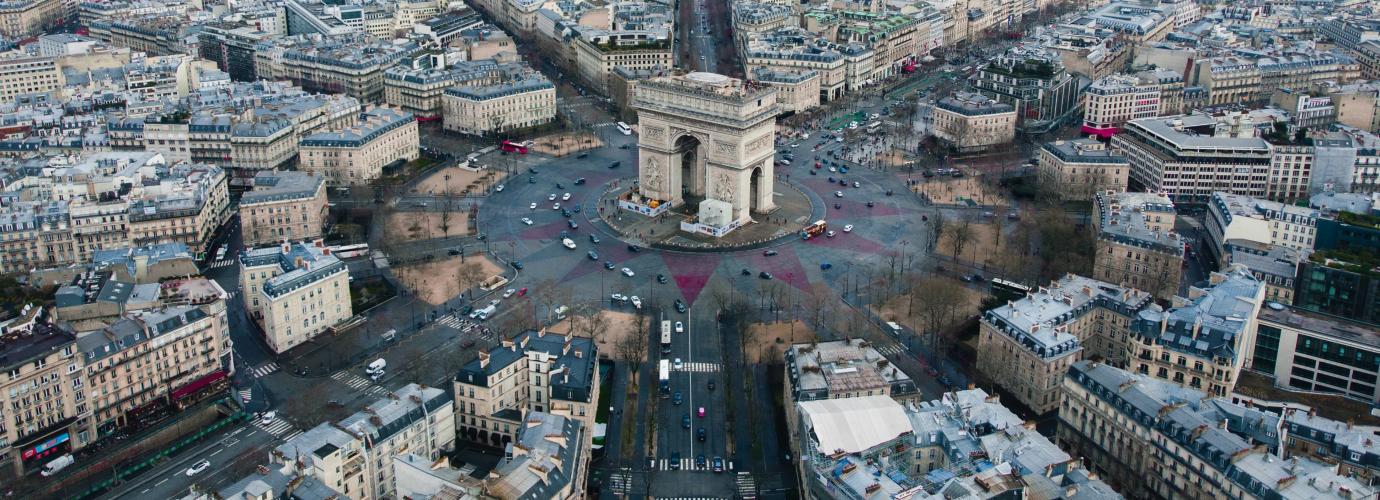
7.5 Third-cycle (PhD) programmes
On this page, organisation of doctoral studies, admission requirements, status of doctoral candidates, grants or allowances from the department of higher education and research, grants through the convention industrielle de formation par la recherche (cifre - industrial training research agreement), bourses de doctorat pour ingénieurs (bdi - engineer phd grants), regional grants or public authority allowances, grants from other research organisations, funding by private organisations, grants for foreign students.
- Commissariat à l'Energie Atomique (CEA - Atomic Energy Agency) grants
Supervision Arrangements
Employability, certification, organisational variation.
The " doctorat " (PhD) is prepared in six semesters (it corresponds to 8 years of study beyond the baccalauréat diploma). The diploma is awarded after presentation of a thesis. This third level is one of high specialisation and research training. After the master's degree or a recognised equivalent, students showing aptitude for research can access PhD studies within the framework of doctoral schools. These schools allow the preparation of a doctorate (PhD) in three or four years (presentation of a thesis or of a set of work). In compliance with the commitments taken in the " Pacte pour la recherche " (Pact for research), expressed by the planning law for research no. 2006-450 of 18 April 2006 , doctoral training has been renovated: the new order of 7 August 2006 bearing on doctoral training is consistent with the orientations set out in the "European Charter for Researchers" especially as regards the status of PhD students. Moreover, attention paid to the implementation of the "thesis charter" guarantees quality insofar as it defines the rights and duties of each party. The preparation of a thesis should be part of a personal and professional project clearly defined in its objectives and resources. Consecutive to this reform adopted by the order of 7 August 2006 , PhD training should offer young PhDs excellent training, attractive nationally and internationally, and the best possible career prospects. Four major orientations are defined: reassertion of doctoral schools as places to structure French doctoral training; primacy given to "quality assurance"; recognition of the doctorat (PhD) as "a professional research experience" and strengthening of measures to guarantee excellent training; creation of doctoral schools made accessible to all higher education institutions. Doctoral studies allow:
- a scientific framework guaranteed by recognised research units or teams;
- training useful for steering their research project and elaborating their professional project;
- international opening, that enables multi-year residence permits and the setting up of unique portals on campuses;
- the possibility of doing a work placement;
- integration monitoring.
During their doctoral training, PhD students take support training courses and pictograms in teaching sessions, seminars, missions or placements organised within the framework of the doctoral school.
Admission to a doctoral school with a view to preparing a PhD is open to holders of a national master's diploma or another diploma conferring the grade of master, an engineering diploma or equivalent diploma through the validation of acquired experience. Enrolment is confirmed by the head after proposal by the doctoral school head and validation by the thesis supervisor and research unit director. It confirms admission to the training dispensed by the doctoral school. Enrolment should be renewed at the start of every university year. For the first PhD enrolment:
- the head of the doctoral school ensures that the scientific, material and financial conditions are brought together to ensure the smooth operation of the candidate's research work and this preparation, after validation by the director of the research unit supervising the quality of the project;
- the thesis charter is signed by the PhD student, thesis supervisor, head of the doctoral school and manager of the host unit or team.
For information about tuition fees please refer to chapter 3 "Funding of Education".
Since 2007, the State Secretary for Higher Education is committed to ensuring that the PhD becomes the flagship diploma of the national and European training system and has taken various initiatives in application of the planning law for research of 18 April 2006 which recognises PhD students as young research professionals To reinforce the appeal of the PhD further, a new contract for PhD students has been proposed with more guarantees and which can be adapted for each individual case. This new "doctoral contract", created by the ESR Law on higher education tends to reinforce doctorate recognition in the public and private sectors ( Article 78 and Article 82 particularly). Moreover, the objective of the Fridenson mission is to ensure recognition of the doctoral degree by companies in their competency and pay scales. Finally, doctors will have access to the 3rd ENA competition, an acknowledgement of up to three years of professional experience.
The other status for PhD students may be students benefiting from a study grant (scholars). There are several sources of grants for PhD studies:
Every year, the Department awards a continent fund of allowances to the Doctoral School which it makes available after having defined the thesis subjects and host teams. Allowances are attributed by the Doctoral School to the best candidates after examination of their applications: the results of the master's degree are particularly decisive. The aim is to allow PhD students to dedicate themselves fully to research work for the preparation of their thesis. The allowances are for three years. Applicants should be aged under 25 but a dispensation is possible for under 30s. Prerequisite diplomas are: master's degree or an equivalence/dispensation. Applicants should be French (or naturalisation in process) or citizen of a member state of the EU or have gained the Master's degree in France. It is possible to work as a supervisor/tutor (see below). For social security, the general system applies as for pension contributions.
These are agreed as part of a partnership between a public research laboratory and a company. A laboratory receiving a CIFRE grant usually publishes a call for applications from students liable to be interested. The aim is to be able to prepare a thesis while working for a company in a research and development programme in liaison with a research team outside the company and at the same time reinforce the company's technological capability. The candidate should be under 26 but may be of any nationality. Two directors (an HDR teacher-researcher and person working in the company's studies or research department) should supervise the PhD. The allowances are for three years.
These are awarded by the CNRS which totally or partially funds them with another research organisation (a company) or a public local authority (e.g. a region). They are awarded (or not) to laboratories associated with the CNRS which have filed an application to the CNRS detailing the thesis subject, host team and the CV of the PhD candidate. The candidate should be under 27 and preferably should have an engineering or equivalent diploma (in addition to the DEA).
Public local authorities (mainly Regions) can offer thesis grants or allowances to research laboratories on subjects deemed to be of priority to them. Depending on the region, allowance awarding conditions are subject to the same aforementioned BDI process (subject, laboratory, candidate's CV).
Like the CNRS, other research organisations or agencies (INSERM, INRIA, INRA, INED, CNES, IFREMER, ONERA, ADEME, ANVAR…) can fund or jointly fund thesis grants. Allowance awarding conditions are subject to the same aforementioned BDI process (subject, laboratory, candidate's CV).
Within the framework of their partnership with the private or semi-public industrial sector, some laboratories can benefit from grants or wages for PhD students. To obtain this type of funding, candidates are invited to contact laboratories and consult the websites of major state-of-the-art industrial companies: automotive, aeronautics, chemicals, pharmaceuticals, electronics, petroleum, etc.)
The Institut de Recherche pour le Développement (IRD) awards a grant to foreign Master's graduates. Furthermore, depending on the country, it is possible for certain foreign students and in certain conditions to obtain a thesis grant from their government and/or the French government.
Commissariat à l'Energie Atomique (CEA - Atomic Energy Agency) grants
The CEA can sign a thesis contract with PhD students preparing their thesis in its laboratories. This thesis contract is designed to allow selected young PhD students to conduct a research project in one of the CEA's many fields of expertise: fundamental research in physics and life science, technological research for industry, R&D for nuclear energy, nuclear defence, protection and safety activities (research themes of CEA laboratories). The fulfilment and performance of the research project, supervised by a confirmed engineer or researcher, as well as a thesis supervisor approved by the University (universities having signed a framework agreement with the CEA) allow the presentation of a thesis and awarding of the University PhD diploma. In all cases, the thesis contract is 3-year fixed term work contract for which the CEA is the employer.
The order of 7 August 2006 opens PhD training to all scientific partners with the sole goal of achieving excellence in research. Attention paid to the implementation of the "thesis charter", a genuine moral contract between the PhD student, his or her thesis supervisor, the doctoral school head and the director of the host laboratory, guarantees quality insofar as it defines the rights and duties of each party. The preparation of a thesis should be part of a personal and professional project clearly defined in its objectives and resources. In the preparation of his or her thesis, the PhD student is an integral part of the research unit. A thesis may be supervised jointly by two thesis supervisors. The order of 6 January 2005 stipulates that to consolidate the construction of the European higher education and research area and develop international cooperation, a French higher education institution authorised to award the PhD can sign an agreement with one or several foreign higher education institutions, benefiting in their countries from the same status, aimed at organising joint international thesis supervision as per the terms set in the order hereto. International joint supervision aims to strengthen the international dimension of doctoral schools, favour mobility of PhD students in different scientific and cultural environments and develop scientific cooperation between French and foreign research teams. The agreement can either be a framework agreement accompanied, for each thesis, by an application agreement or an agreement signed specifically for each thesis. These agreements should specify the name of the contracting higher education institutions and, for each thesis, the name of the student in question and thesis subject. They bind contracting institutions on the basis of a reciprocity principle. PhDs awarded within the framework of the order hereto are rightfully recognised in France. Agreements should mention the forms of recognition in the other country or countries. When the rules applicable to PhD studies in the relevant countries are incompatible with each other, French institutions are authorised to dispense from the provisions of the aforementioned order of 25 April 2002 on these specific aspects, while respecting the provisions of the order hereto as per the terms defined by the agreement. PhD students conduct their work under the responsibility, in each relevant country, of a thesis supervisor who undertakes to exercise his or her supervisory role in cooperation with the other thesis supervisors. The thesis supervisors and PhD student sign the agreement mentioned in article 3 for the relevant thesis. The thesis is prepared in periods alternating between the relevant institutions according to a balance and terms defined in the agreement.
PhD training consists in training through research, in research and innovation. It is a genuine professional research experience, opening up the way to a career, in variable conditions and with variable responsibilities depending on the sector. Obtaining a PhD can also be followed up by registration with the Habilitation à Diriger des Recherches (HDR - research-supervision accreditation), a diploma confirming the aptitude to implement original high level research and ability to supervise young researchers. The key purpose of this diploma is to allow access to university professors' body.
PhD students conduct their work under the control and responsibility of their thesis director. The functions of thesis supervisor or co-supervisor can be occupied by:
- lecturers and assimilated staff as set out by the provisions bearing on the designation of members of the Conseil National des Universités (national university council) or by equivalent ranking teachers not supervised by the Department of Education; by personnel of higher education institutions, public research organisations and research foundations, qualified to supervise research;
- other personalities, PhD holders, chosen owing to their scientific competence by the head, as proposed by the head of the doctoral school and validated by the institution's scientific committee.
The institution's scientific committee decides on the maximum number of PhD students to be supervised by a thesis supervisor, possibly according to the relevant subject fields, after approval from the doctoral schools' boards. With respect to this, the provisions agreed by the institutions are taken into account in the regular assessment of doctoral schools.
Authorisation to present a thesis is given by the head, after approval from the head of the doctoral school head and proposal by the thesis supervisor. The candidate's work is previously examined by at least two assessors appointed by the head, approved to supervise research or belonging to one of the categories set out in article 17 above, by proposal of the doctoral school head after approval from the thesis supervisor. The assessors should not belong to the doctoral school and the candidate's institution. Assessors belonging to foreign higher education or research institutions could be called in. The assessors will notify their decision in written reports on the basis of which the institution's head authorises the thesis, after approval from the doctoral school's head. These reports are given to the jury and candidate before the presentation of the thesis. The thesis jury is appointed by the head, after approval from the doctoral school head and the thesis supervisor. The jury can be composed of 3 to 8 members. At least half of them are French or foreign personalities, external to the doctoral school and candidate's enrolment institution and chosen owing to their scientific competence, subject to provisions bearing on international thesis co-supervision. When several institutions are qualified to jointly award the PhD, the jury is designated by the relevant heads of institution as per the conditions set out by the agreement that binds them. At least half of the jury should be composed or lecturers or assimilated as per the provisions bearing on the designation of members of the Conseil national des universités (National university council) or teachers of equivalent rank not supervised by the Department of Higher Education. The members of the jury choose a chairperson from their members and, if applicable, a thesis reporter. The chairperson should be a lecturer or assimilated teacher or teacher of equivalent rank as per the previous paragraph. The thesis supervisor, if he/she participates in the jury, may not be chosen as the thesis reporter or chairman of the jury. The thesis is presented publicly, unless a dispensation is exceptionally issued by the head if the subject of the thesis contains proven confidential material. Before the presentation, the summary of the thesis is circulated within the institution or institutions benefiting from joint accreditation. After the presentation, the thesis is circulated within the university community. As part of its deliberations, the jury assesses the quality of the candidate's work, his or her aptitude to position it in its scientific context and his/her presentation qualities. When the work corresponds to collective research, the personal share of each candidate is assessed by a dissertation that he/she drafts and presents individually to the jury. The admission or adjournment is announced after the jury's deliberation. The chairman signs the thesis report which is countersigned by all the members of the jury. This report can indicate one of the following grades: honourable, very honourable, very honourable "cum laude" (this mention’s deliverance is highly discipline-related). The highest grade, which is reserved for candidates with exceptional qualities demonstrated by their work and presentation, may only be awarded after a secret and unanimous ballot of members of the jury. In this case, the chairperson of the jury drafts an additional report justifying this distinction. The thesis report specifies, if applicable, that the institution does not award a grade. The thesis report is communicated to the candidate. The national PhD diploma is awarded by the head or heads after the compliant proposal by the jury. The name and seal of the institution or institutions awarding the PhD are featured on the certificate. The subject field, title of the thesis or name of the main work, the name of the doctoral school and the names and titles of the members of the jury and, if applicable, indication of an international thesis joint supervision are also mentioned.
The awarding of the national PhD diploma confers the grade of PhD or Doctor. In the specific field of healthcare, the total term of training, also organised into three cycles, varies, depending on subjects, and leads to the awarding of the following diplomas:
- In medicine: 9 to 11 years of study are required to obtain the State doctor of medicine diploma and specialised study diploma (4 years for medical specialization and 5 years for surgical specialization);
- In odontology: the State diploma in dental surgery is obtained after 6 years of study or 8 years when completed by a certificate of further dental surgery studies (training taken by house physicians);
- In pharmacy: the State diploma in pharmacy is obtained after 6 years of study or 9 years when completed by a certificate of specialist studies.
Besides these national diplomas approved by the Department of Higher Education, universities can set up diplomas under their own responsibility (university or institution diplomas). These diplomas fall under the exclusive competence of institutions without the State being able to intervene on their recognition or control their quality. Institutions can resort to this practice to satisfy specific or transitory needs, professional in particular. However, the policy conducted by the Department of Higher Education aims to favour the national diploma system which provides students with better guarantees.
There is not organisational variation for this level of studies.
- Academic Programme Finder
- Degrees in English
- I2EN Accredited Programmes
- France’s Education & Training Framework
- International Students in France
- International Academic Exchanges
- Internship Opportunities
- Professional training
- Partnering for success
- The Excellence of French Expertise in Nuclear Human Capacity Building
- Offering Nuclear Education & Training Solutions
- I2EN – Brief History
- Representation & Coordination
- Accreditation
- The Board of Directors
- The Strategic Committee
- The Committee of Experts
- Associate Members
- Key Figures
- French Nuclear Stakeholders
- Brief History of Nuclear Energy in France

CEA, the Atomic Energy and Alternative Energies Commission, is a French public research organization. We conduct research in low carbon energies (nuclear and renewable energies), defense and global security, information technologies, and health technologies. In each of these four fields, CEA’s work relies on first-class fundamental research.
The Commission also participates in the design and operation of very large international research facilities such as the LHC, ITER, and the ESRF. Through our strong relationships with university and industry partners, we support industrial companies, the set-up of innovative technology start-up companies, and exports of French nuclear technologies.
Securing competitive, safe and CO2-free energy to maintain France’s energy independence and fight global warming.
Research on nuclear energy at CEA is carried out by the Nuclear Energy Division and focuses on 7 areas of expertise:
- the design of future nuclear systems—referred to as Generation IV nuclear systems—and the associated reactors and fuel cycle. They aim at optimizing the use of uranium resources and reducing waste production. CEA plays a key role in the Generation IV International Forum,
- the optimization of current French nuclear reactors and the related fuel cycle,
- the development and operation of large simulation and experimental tools,
- research on radioactive waste management and control of the impact of nuclear activities,
- the cleanup and dismantling of nuclear facilities,
- safety and security,
- and nuclear materials & mechanics.
As a nuclear operator, the Nuclear Energy Division is also in charge of managing and enhancing CEA’s nuclear facilities. It carries out construction, renovation, decommissioning, and dismantling programs.
Our outstanding research equipment features some unique facilities.
Academic education and vocational training
Academic education (from Bachelor’s degrees to Master’s degrees) and vocational training at CEA are managed by INSTN (see p. 62). Research training is managed by labs themselves together with our Office for Research Training & Career Development.
Research training
PhD students at CEA join research teams and complete their doctoral research under the guidance of the lab supervisor and/or an academic supervisor. They also receive professional training in different settings inasmuch as they are encouraged to do internships in academia, government organizations, and industry.
Together with INSTN, the Office for Research Training & Career Development also organizes seminars and workshops to help PhD students manage their studies, enlarge their knowledge of the business world, and prepare their careers. These include but are not limited to:
- conducting your thesis and determining your career project
- managing a scientific project
- technology transfer and innovation in the industry
- supervising a PhD student, for lab supervisors.
Unequalled research facilities, tools and equipment
We have cutting-edge nuclear research facilities, some of which are unique in the world. They are constantly updated and enhanced so as to maintain their exceptional experimental capabilities. Our PhD students have access to our 27 Equipex (Facilities of Excellence) and 33 Labex (Laboratories of Excellence), as well as to all our other facilities:
- research reactors (ORPHEE, JHR in construction—start of operation scheduled in 2017) and critical models (EOLE, MINERVE),
- hot laboratories to carry out studies on radioactive substances (ATALANTE, LECI),
- experimental platforms for thermal-hydraulic, earthquake, severe accident, and corrosion studies.
They also have access to the biggest library resource of doctoral and post-doctoral level in France dedicated to nuclear science and technology, with over 1,000,000 books, magazine collections, technical reports, and dissertations.
International school in nuclear engineering
INSTN and the Nuclear Energy Division organize each year an international school in nuclear engineering for PhD students, post-docs, young professionals, and established engineers. The school consists of 6 one-week courses:
- thermal hydraulics and safety,
- materials for nuclear reactor, fuel and structures,
- reactor core physics: deterministic and Monte Carlo methods,
- nuclear fuels for LWRs and FRs,
- nuclear fuel cycle and reprocessing,
- nuclear waste management.
International course on generation IV nuclear reactors
ENEN, INSTN, and CEA have set up an annual international course on future nuclear reactor systems. It is meant for professionals, researchers, and students, and taught entirely in English by international experts in the field. It includes lectures and tutorials on SFRs, HTRs and VHTRs, GFRs, LFRs, SCWRs, MSRs, and the fuel cycle.
Support to newcomer and expanding countries
We are a founding member of I2EN. Together with INSTN and other industry partners, we often take part in I2EN’s missions abroad to help newcomer and expanding countries develop their HCB plans.
research centers
technicians, engineers, researchers and support staff
priority patents filed
spin-offs since 1972 in the innovative technologies sector
overall resources
PhD students
postdoctoral fellows
publications in peer-reviewed journals
frameworks agreements with universities and graduate schools

I2EN International Institute of Nuclear Energy 56 avenue de Wagram 75017 Paris France
- Legal notice
Politique de confidentialité
- Permanent Scientific Staff
- Permanent Technical Staf
PhD Students
- Close collaborators
- Hybrid Quantum Systems
- Superconducting Weak Links
- Electrodynamics of quantum circuits
- Single microwave photon detection
- Articles by date
- Superconducting Qubits
- Hybrid Structures for Quantum Information
- Mesoscopic Josephson effect: Andreev Bound States in weak links
- Mesoscopic Superconductivity
- Energy relaxation and phase coherence of electrons in diffusive wires
- Mesoscopic transport
- Mesosocopic QED
- Coulomb blockade
- Electron pumping
- Arriving by Car
- Arriving by Public Transportations
- Arriving By Plane
- Phone: +33 1 69 08 55 29
- Fax: +33 1 69 08 74 42 (add name on 1st page)
- email: [email protected]
Comments are closed.

- A propos du CEA
- Cartographie du CEA
- Les missions
- Sûreté - Sécurité
- Relations internationales
- Recrutement & formation
- Les directions opérationnelles
- Applications militaires
- Energie nucléaire
- Recherche fondamentale
- Défense & sécurité
- Energies renouvelables
- Technologies pour l'industrie
- Matière & Univers
- Santé & sciences du vivant
- Climat & environnement
- Numérique
- Santé/environnement
- Contacts & plans d'accès
- DAM Île-de-France
- journaliste
- Emploi & formation
- Culture scientifique
- Enseignants
- Médiathèque
English Portal
- Useful Links
- Fundamental Research Division
- Go to content
- Go to navigation
- Go to search
To access all features of this site, you must enable Javascript. Here are the instructions for enabling Javascript in your web browser .

From research to industry

Research areas
The cea – a key player in scientific and technological research.
The French Alternative Energies and Atomic Energy Commission (CEA) is a key player in research, development and innovation.
- Scientific and technical cooperation
- Sovereign missions
- Support for French nuclear industry
- European Community
- Startup Portfolio
- Companies area
Discover the main research areas on which the CEA works.
- Defence and security
- Technological research for industry
- Matter and universe
- Health and life sciences
- Climate and environment
Find the latest scientific and institutional news of the CEA.
- All the news
- Press contacts
The CEA publishes various scientific and technical periodicals and videos. Through them, you can discover the CEA’s major research topics and the latest technological innovations produced by its laboratories.
- Thematic publications
- Corporate publications
- partners / suppliers
- French portal
Science and technology for tomorrow's |
Nuclear energy in 14 questions.
Do you have many questions about nuclear energy? How does it work, how is it used in France, what kind of impact does it have, and what are the safety issues? We can answer all your questions!
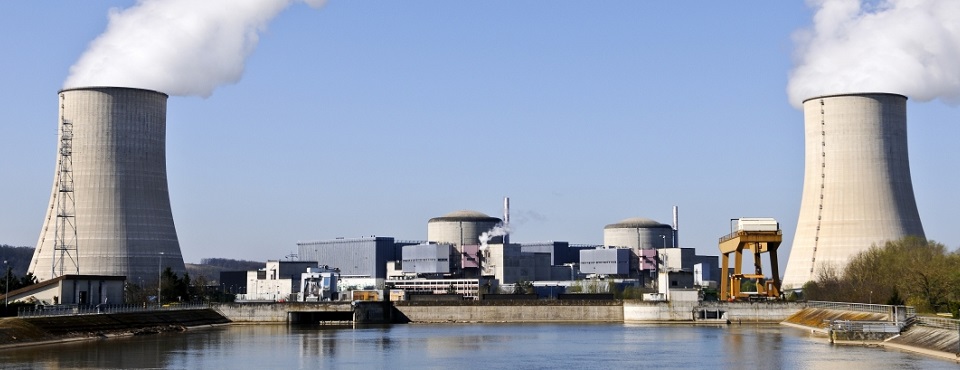
Discover the main research areas on which the CEA is working.

Protection to boost innovation
The CEA recently published its intellectual property charter developed for its industry partners.

- The CEA: a key player in technological research
The French Alternative Energies and Atomic Energy Commission (CEA) is a key player in research, development and innovation in four main areas: defence and security, low carbon energies (nuclear and renewable energies), technological research for industry, fundamental research in the physical sciences and life sciences.
Latest news
The CEA is revealing a series of in vivo human brain images acquired with the Iseult MRI machine and its unmatched 11.7 teslas magnetic field strength. This success is the fruit of more than 20 years of R&D as part of the Iseult project, with one pillar goal being to design and build the world’s most powerful MRI machine. Its ambition is to study healthy and diseased human brains with an unprecedented resolution, allowing us to discover new details relating to the brain’s anatomy, connections, and activity.
The CEA and Forschungszentrum Jülich (FZJ) are continuing their successful collaboration in the research area of artificial intelligence, data analytics and simulation.
The CEA – is one of the most innovative research and technology bodies in the world, and as such, has attended the CES trade show in Las Vegas for ten years with a view to presenting its demos and the start-ups created through its laboratories and expertise, all supported by its impressive patent portfolio. From January 9 to 12, 2024, meet the CEA at booth #61101, Venetian Expo, Hall G
- All the news
See also (10 documents)

- Legal notices
- Personal data protection (GDPR)
- Useful links

Browse the site
- International cooperation
- R&D Partners area
- Suppliers area
- Nuclear energy
- Renewable energies
- Matter and Universe
Alternative and Atomic Energies Agency
CEA is a French government-funded technological research organisation in four main areas: low-carbon energies, defense and security, information technologies and health technologies. A prominent player in the European Research Area, it is involved in setting up collaborative projects with many partners around the world.

Browse the portal
- Site institutionnel
- Espace emploi et formation
- Espace chercheurs
- Espace enseignants
- Espace jeunes
- Espace entreprises
- __________________
- English portal
- Le site institutionnel du CEA
- Direction des applications militaires
- Direction de l'énergie nucléaire
- Direction de la recherche technologique, CEA Tech
- Direction de la recherche fondamentale
- DAM Ile-de-France
- Découvrir & comprendre, l'espace de culture scientifique du CEA
- Jeu vidéo Prisonnier quantique
- Toutes les actus
- Espace presse
- Santé / Environnement

Nuclear Physics Division
Institute of research into the fundamental laws of the universe.
- The DPhN in short Chiffre-clés -->
- 4 laboratories
- Expertise, R&D : Nuclear physics | Nucleon structure
- Useful Infromations Venir au DPHP -->
- Access plan
- Hotels nearby
- Publications Production intellectuelle -->
- Institutional reports
- Access to PhD thesis, Habilitations and publications
- Join us Rejoindre le DPHP -->
- Job information
- You are here : Home
- Departments

The nuclear physics department conducts experimental activities, participating in experiments with particle accelerators such as Alice at the LHC, and fundamental theoretical research activities focused on the study of matter at the level of nuclei and their components. Two scales are studied at DPhN...... ... »»
Panels with Contextual Classes
Jobs, internships, thesis

JOB OFFERS

INTERNSHP OFFERS

THESIS OFFERS
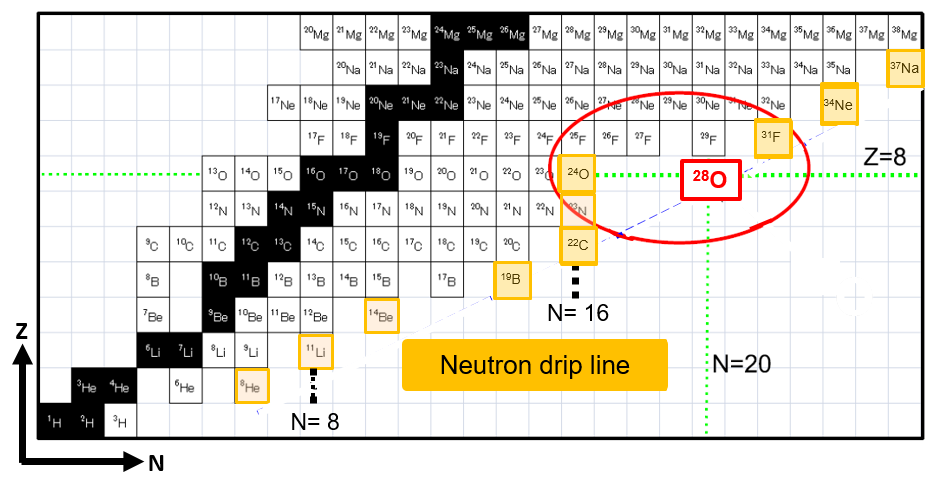
- Visiting the DPhN
Dernière mise à jour : Feb 19th, 2024


- Go to content
- Go to navigation
- Go to search
To access all features of this site, you must enable Javascript. Here are the instructions for enabling Javascript in your web browser .
International PhD programme
in numerical simulation

- NUMERICS program
- PUBLICATIONS & CONF
- Practical information
- What is NUMERICS?

- INSTN Training programme
- Summer schools
- Liste of PhD projects
- Fellows'life
- PACE- mobility promotion
- Publications
- Conferences
- OPEN SCIENCE
CEA-Saclay by public transport

- By public transport
- by public transport
JSIAM 2024
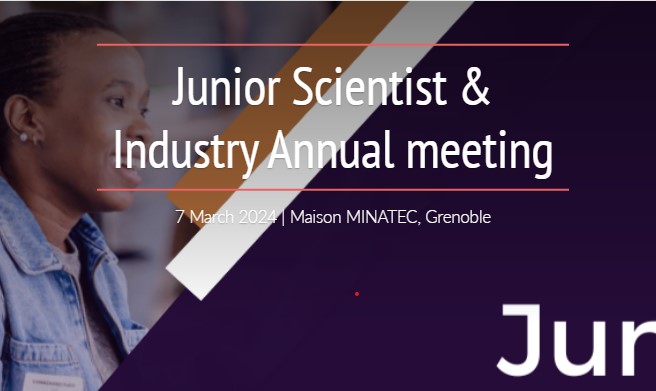
October - Open science month

Fellow's story
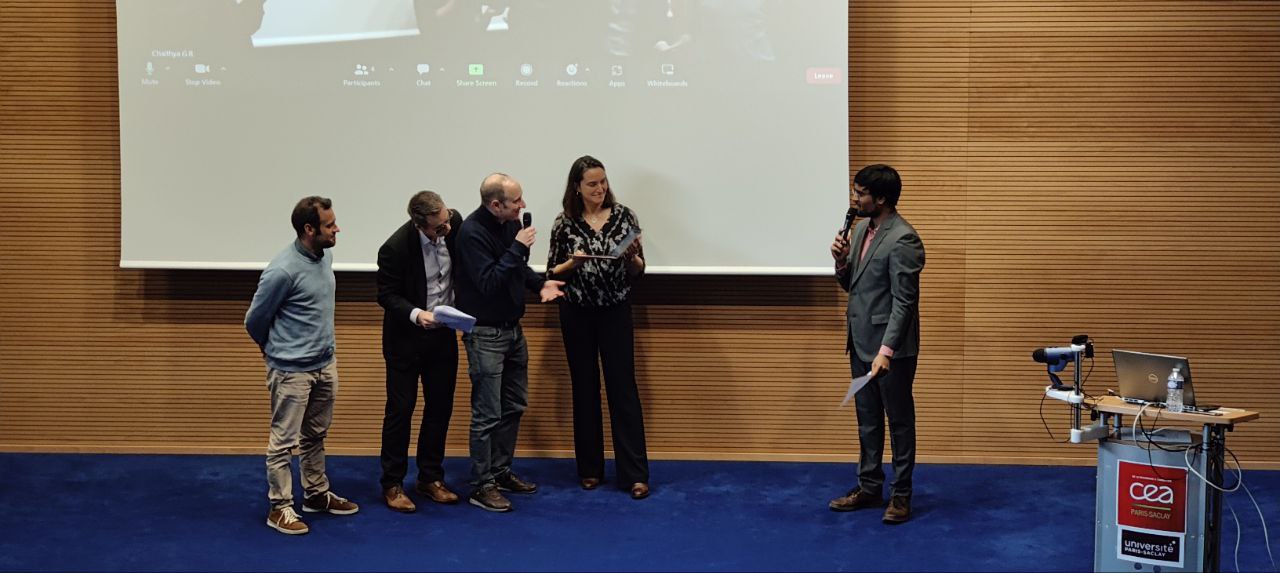
CEA–EDF–Inria Summer Schools 2023
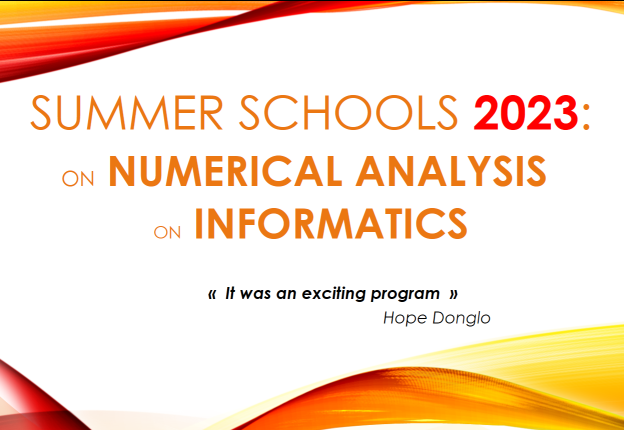
Short mobility "PACE" programme
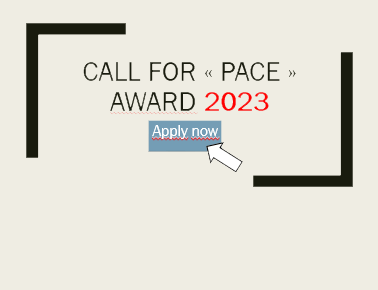
Enterprise Creation Day
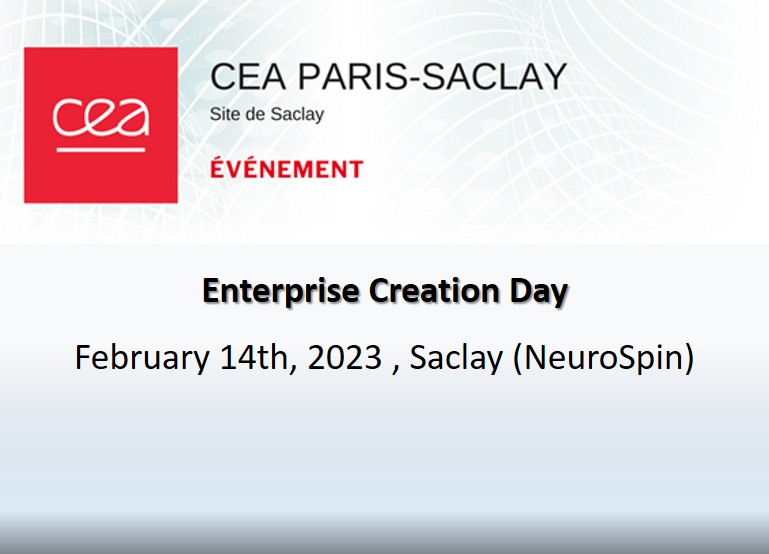
COSCINUS - Digital Sciences Community
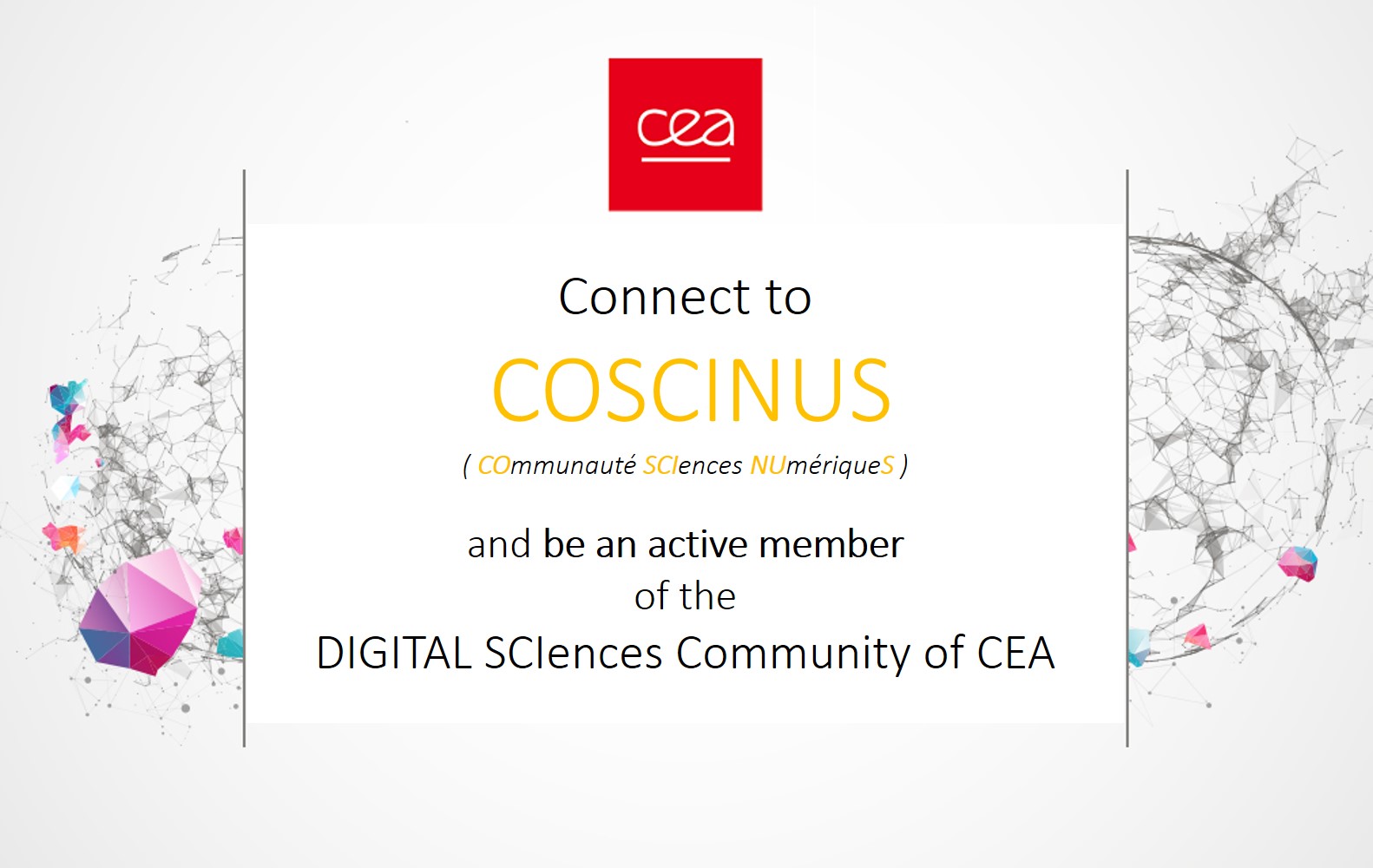
Project Information:
- EXCELLENT SCIENCE - Marie Skłodowska-Curie Actions
Office for Research Training and Scientific Careers (SFRES) [email protected]
- Legal notices
- European Union's Horizon H2020
- Marie Skłodowska-Curie actions (MSCA)
Browse the site
Alternative and atomic energies agency.
CEA is a French government-funded technological research organisation in four main areas: low-carbon energies, defense and security, information technologies and health technologies. A prominent player in the European Research Area, it is involved in setting up collaborative projects with many partners around the world.

Browse the portal

COMMENTS
Theses and PhDs at the CEA. Each year, nearly 400 young scientists are welcomed to a CEA laboratory to prepare a doctoral thesis in partnership with a doctoral school. As part of the preparation of a thesis, young scientists can benefit from different types of funding, which condition the kind of contract as well as the conditions to be met.
Financed PhD thesis. 12 April 2024 Development of Silicon/III-V CQD Heterojunctions. Financed PhD thesis. 13 February 2024 Study of the thermal performances of a reticular type regenerator. Financed PhD thesis. 1 February 2024 Deciphering the biogenesis of iron-sulfur clusters in mycobacteria to develop new treatments for tuberculosis.
PhD & Post-doc programs Find your PhD project Preparing you thesis at CEA Find a post-doc project PhD and Post-doc associations. The CEA welcomes 1,600 doctoral PhD students to its laboratories each year. ... rue des Martyrs 38054 Grenoble Cedex 09 France. See more . INSTN/UEM Centre CEA de Marcoule - BP 17171 30207 Bagnols-sur-Cèze France ...
2016. Vivien Schmitt. Design, fabrication, and test of a four superconducting quantum-bit processor. 2015. Cécile Grezes. Towards a spin ensemble quantum memory for superconducting qubits. 2014. Landry Bretheau. Localized excitations in superconducting atomic contacts: probing the Andreev doublet.
CEA is a French government-funded technological research organisation in four main areas: low-carbon energies, defense and security, information technologies and health technologies. A prominent player in the European Research Area, it is involved in setting up collaborative projects with many partners around the world.
PhD & Post-doc programs Find your PhD project Preparing you thesis at CEA Find a post-doc project PhD and Post-doc associations. ... 17, rue des Martyrs 38054 Grenoble Cedex 09 France. See more . INSTN/UEM Centre CEA de Marcoule - BP 17171 30207 Bagnols-sur-Cèze France. See more . INSTN, a school administred by the CEA.
PhD & Post-doc programs Find your PhD project Preparing you thesis at CEA Find a post-doc project PhD and Post-doc associations. ... 17, rue des Martyrs 38054 Grenoble Cedex 09 France. See more . INSTN/UEM Centre CEA de Marcoule - BP 17171 30207 Bagnols-sur-Cèze France. See more . INSTN, a school administred by the CEA.
The French Alternative Energies and Atomic Energy Commission, or CEA (French: Commissariat à l'énergie atomique et aux énergies alternatives), is a French public government-funded research organisation in the areas of energy, defense and security, information technologies and health technologies.The CEA maintains a cross-disciplinary culture of engineers and researchers, building on the ...
The goal of this thesis is to implement a novel LWFA injector concept in several state-of-the-art laser facilities, in France and abroad. This injector concept, recently conceived in our group, consists in a solid target coupled with a gas-jet, and should be able to accelerate a substantially higher amount of charge with respect to conventional ...
IRFU is also involved in PTA-France and International PTA. Developing methods for detecting gravitational wave sources and deducing the associated physical consequences is at the heart of the proposed thesis topic. ... The CMS group at CEA-Saclay/IRFU/DPhP proposes a thesis on the search for double Higgs boson production in the decay channel ...
The CEA can sign a thesis contract with PhD students preparing their thesis in its laboratories. This thesis contract is designed to allow selected young PhD students to conduct a research project in one of the CEA's many fields of expertise: fundamental research in physics and life science, technological research for industry, R&D for nuclear ...
Research field : Soft matter and complex fluids. Location : Service de Physique de l'Etat Condensé (SPEC) Systèmes Physiques Hors-équilibre, hYdrodynamique, éNergie et compleXes (SPHYNX) Saclay. Contact : Sébastien AUMAITRE. Starting date : 01-10-2024.
The CEA has adopted a very unique approach in the research and innovation sector, based on 5 pillars: Its historical role in France's defence and national security strategy. Its ground-breaking strategy in research and innovation through its study of the atom. Its capacity to handle projects, from the fundamental discovery of a concept through ...
Master Thesis Projects 2024. The Laboratory for Quantum Photonics, Electronics, and Engineering (PHELIQS) is a joint research unit of the CEA, the Univ. Grenoble Alpes (UGA), and Grenoble INP Graduate Schools of Engineering and Management, with strong links to neighboring CNRS laboratories. The laboratory comprises five teams with complementary ...
CEA, the Atomic Energy and Alternative Energies Commission, is a French public research organization. ... conducting your thesis and determining your career project; ... They also have access to the biggest library resource of doctoral and post-doctoral level in France dedicated to nuclear science and technology, with over 1,000,000 books ...
Research Group in Quantum Electronics, CEA-Saclay, France. Skip to content. Home; People. Permanent Scientific Staff; Permanent Technical Staf
The CEA is established in nine centers spread throughout France. It works in partnership with many other research bodies, local authorities and universities. Within this context, the CEA is a stakeholder in a series of national alliances set up to coordinate French research in energy (ANCRE), life sciences and health (AVIESAN), digital science ...
Discover some of the CEA's research topics with this selection of videos (in English or subtitled). The French Alternative Energies and Atomic Energy Commission (CEA) is a key player in research, development and innovation in four main areas: defence and security, low carbon energies (nuclear and renewable energies), technological research for ...
The Nuclear Physics Division. You are here : Home. Departments. DPHN. The nuclear physics department conducts experimental activities, participating in experiments with particle accelerators such as Alice at the LHC, and fundamental theoretical research activities focused on the study of matter at the level of nuclei and their components.
CEA is a French government-funded technological research organisation in four main areas: low-carbon energies, defense and security, information technologies and health technologies. A prominent player in the European Research Area, it is involved in setting up collaborative projects with many partners around the world.